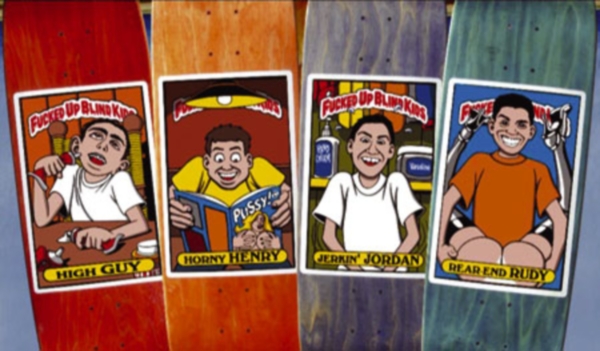
In 1989, Brad Dorfman reported a whopping 89-million dollars in company turnover for Vision Inc. Not too shabby. Two years prior, with business already blooming alongside the 80s skateboard explosion, Brad had to make what probably seemed like a rather mundane decision at the time. He kicked 27-year-old freestyle professional Steve Rocco off of Sims Skateboards, one of Vision’s many lucrative subsidiaries. By 1991, that very same man was at the helm of the best-selling company in skateboarding: World Industries and rumors were churning about Vision’s imminent bankruptcy. What happened? A man living on Natas Kaupas’ kitchen floor maxed out his credit card to buy $6,000 worth of boards, screened them, and then proceeded to all but tear down the “Big Five” (Vision, Powell Peralta, Santa Cruz, Thrasher, and Transworld), usher in a new era of street skating, give a heavy shot in the arm to the skater-owned company, and permanently change the rules by which skateboarders do business. He did so with little more than a keen sense of humor, an ear to the ground, fearless power moves, and an incredible knack for turning his weaknesses into advantages. That man would quickly become known throughout skateboarding simply as “Rocco”. The following are the broad strokes.

The Boot And The Birth
”It actually never occurred to me to start a company. I was just a skater at the time that had been kicked off a team. I thought my life, at least the part that had anything to do with skating, was over.” According to Rocco, it was Zephyr Surf Shop co-founder and one-time Z-Boys team manager Skip Engblom who first suggested buying 500 boards and starting a company. Accordingly, Rocco pushed all his chips into the middle of the table, and with a little hand from Natas and Skip, launched SMA Rocco Division. SMA or Santa Monica Airlines was a subsidiary company owned by Santa Cruz that Natas rode for at the time. Very quickly, Santa Cruz, an established mainstay in the industry over the past few decades, demanded he stop using the SMA name for his company. At the same time, “SMA World Industries” had been screened on a few boards and shirts as a joke for how small the operation actually was. In response, Rocco dropped the SMA name and World Industries was born.

The Seed Investments
With an actual company under his belt, Rocco began searching for capital by which to sustain his small venture. John Lucero made a quick cameo as an investor, then promptly pulled out, selling his shares to then unbeatable Powell Peralta freestyle sensation Rodney Mullen for $6,000. Rocco and Rodney had befriended each other earlier via the freestyle circuit, and Rocco went on to finance another $20,000 of his company through a shady loan shark by the name of Kirby. Essentially, within his first year of business, Rocco had a choice; he could pay Kirby back the 30 grand with monthly payments of $2,500, or find out what happens to your knees when a loan shark doesn’t get paid in full. In Rocco’s words, “After many sleepless nights, we paid it back and Kirby became a friend and shareholder in the company.”

The First Team And The Barnyard Board
Rocco’s very first rider would come in the form of Jesse “The Mess” Martinez. While considered one of the top established street skaters at the time, Jesse was as rebellious as Rocco and took little convincing in leaving Powell Peralta for World. Former Alva rider Jeff Hartsel quickly followed suit, and with three established names to screen print on his boards, the powers that be (a.k.a Powell, Vision, and Santa Cruz) began to take notice of what Steve was up to. Their fears were quickly compounded when Rocco managed to officially swipe Rodney Mullen, and a red-hot seventeen-year-old Mike Vallely, up and out from under Powell’s aging feet. Vallely’s first board, the “Barnyard” model, was the first-ever double-kick shaped deck to take hold in skateboarding which changed board shapes and concaves forever. It was also legendary World artist Marc McKee’s first board graphic, setting the tone for the neon, tongue-in-cheek cartoon graphics (later, also under the skilled hands of Sean Cliver) that the company became notorious for, and also became Rocco’s first major financial success as a best-selling board. On top of all that, the Barnyard board was Rodney Mullen’s first at bat as a board shaper.

The Bet On Street Skating
As skateboarding at large watched intently, Rocco began, to the ridicule of many to essentially assemble the first all-street team ever. At the time, the industry believed it impossible for any company to survive without a marquee vert superstar like Tony Hawk or Christian Hosoi. However, very quickly this theory proved to have become the exact opposite. Vert was about to die. World’s first video, Rubbish Heap, contained absolutely no vert riders, except Jesse Martinez’s incredible padless midsize ramp lines (and Tom Boyle in the end credits) and essentially blew up the likes of Jeremy Klein (first back Smith on a rail ever), Ron Chatman, and obviously Mike V. The video also contained Mullen’s first-ever footage riding a “street” board, which was one of Spike Jonze’s first stints behind a video camera, and made a mockery of Powell and Vision’s ultra high and glossy production values. With every passing month, skateboarding was turning further and further upside down, and the old guard was literally caught off guard.

The Spin-off Companies and Video Takeover
By 1990, Mark Gonzales, then a rookie for Vision, approached Rocco, simply out of his amazement that Steve, a fellow skater, was running a company within which he could basically do everything and anything he wanted. Gonz proposed his company, Blind- “Blind” being the opposite of “Vision”- and Rocco grabbed World’s top pro at the time, Jason Lee, and sewed him in to Mark’s new venture. A year later, Natas Kaupas, equally amazed at what Rocco and now Mark were doing, left Santa Cruz to start his own company under the Rocco umbrella: 101 Skateboards.
Within the next few years, World Industries became a parent company to a whole slew of extremely profitable off shot “subsidiary” companies. Most notably, along with Blind and 101, was Plan B, a project former H-Street co-founder Mike Ternasky came to Rocco with, ultimately leading to one of the most star-studded teams ever assembled: Danny Way, Colin McKay, Matt Hensley, Sean Sheffey, Rich Howard, Mike Carroll, Sal Barbier, Pat Duffy, and Ryan Fabre.
After Rubbish Heap in ‘89, Blind’s Video Days in ‘91 (Spike Jonze’s first job directing and considered by many to this day to be the best skateboard video of all time), it became an undebatable fact that any and every video coming out of the Rocco family editing bay would be the absolute best. All this to the enormous chagrin of Stacey Peralta and George Powell, who had essentially held that spot since the skateboard video was given birth via the Bones Brigade Video Show back in ‘85.
The Ad Wars
Since the inception of World, every last ad Rocco ran contained two constant elements-sarcastic wit (often at his own expense) and seething controversy (often at the expense of others’ morals). However, it was not until Powell ran an ad with three of their riders, mocking the skater-owned “smaller” companies (a direct attack on Rocco, Gonz, et cetera), that all-out war was declared between the two camps.
With his next Blind ad, now referred to simply as the infamous “Dear George” letter, Rocco unveiled a series of boards directly mocking some of Powell’s most prestigious VCJ graphics. The ad was accompanied by an open letter to George Powell ending simply with “P.S. Do you think I should kill myself.” The end result, within months of this now very public battle, Powell’s board sales tanked like the Titanic while Rocco’s rose like Apollo 13. It was rumored in the industry that Steve was then holding nearly 80 percent of the market share in the U.S. alone. In his head-to-head battle with nearly all his former “Big Five” enemies, Steve had beaten them at their own game. It was now his turn to make the rules.
After gathering his legends in the form of Jesse, Hartsel, Rodney, Mike V., the Gonz, and Natas, Rocco quickly moved on and showed incredible knack for hooking up not only the youngest street skaters (a.k.a. Chris Branagh, pro at eleven), but more importantly, some of the most talented throughout the past decade. He found Daewon Song and Jason Lee, he spotted the magical talent of Kareem Campbell, and built an incubus during the early 90s that nurtured the likes of Guy Mariano, Henry Sanchez, Lavar McBride, Marcus McBride, Chico Brenes, Daniel Castillo, Brian Lotti, Jovantae Turner, Eric Koston, Chris Pastras, Randy Colvin, Keenan Milton, Shiloh Greathouse, Ronnie Creager, Gabriel Rodriguez, Joey Suriel, Lee Smith, Gino Iannucci, Rudy Johnson, Tim Gavin, Richard Mulder, and on and on and on. Rocco was also one of the first company owners to push a seriously multi-ethnic, multi-racial team in what had formerly been viewed as kind of a white-washed pastime.

Big Brother To Jackass
With his constantly profane ad concepts, Rocco was continually running into problems with the censorship policies of then Larry Balma owned Transworld and even the more lax policies up at Thrasher. When Larry Balma refused to run a specific World ad on the grounds that it promoted teen suicide, Rocco had had enough. In response, he replaced the ad with a questionnaire, explaining his situation, and asking Transworld’s readers what he should do in response. Their answer:”Start your own magazine.” Accordingly, Big Brother magazine saw its first issue. After giving Jeff Tremaine his first shot in skateboard magazine publishing, which in turn later gave Johnny Knoxville his first chance at acting via the Big Brother videos, Big Brother became one of the most controversial magazines of the 90s period (full frontal nudity, drugs, theft, and the Los Angeles local news favorite “How To Kill Yourself” article). Rocco eventually sold Big Brother to none other than Larry Flynt in 1996. With a little help from Spike Jonze, Tremaine would ultimately transition Big Brother’s videos into MTV’s Jackass, Wild Boyz, Viva La Bam, Rob & Big, and the rest.

Teenage Millionaires And Company Mutiny
In 1992, Rocco had his first ten million dollar year. One of the best things and ultimately one of the hardest things about him running his teams was that he essentially gave them unlimited amounts of cash at incredibly young ages and provided them with an absolute carte blanche to do whatever, whenever they wanted. Turning them loose in four-star hotels and providing them with the infamous World Park where they pretty much tested any and every moral boundary from beer, acid, and porn to wanton public vandalism and theft, Rocco’s riders ultimately took the ridiculous amounts of freedom they had been handed, along with so many thousand dollar shopping sprees and began to grow apart from him and Rodney. This problem culminated in mid 1993 when Rich Howard, Mike Carroll, Megan Baltimore, and Spike Jonze took Sean Sheffey, Jovantae Turner, Jeron Wilson, Tim Gavin, Tony Fergusson, Rudy Johnson, Eric Koston, and Guy Mariano out from under various Rocco-owned companies to start Girl Skateboards. Howard and company subsequently swept up Paulo Diaz, Ben Sanchez, Gabriel Rodriguez, Chico Brenes, Richard Mulder, Shamil Randle, and Daniel Castillo to start Chocolate the following year. Rocco, seemingly invincible, had taken his first major hit.
Cleaning Up Shop And The Year Of The Reaper
As Rocco attempted to re-organize after losing a huge chunk of his marquee riders, he restructured what had been up to that point an extremely disorganized combination of haphazard accounting and lax general business practices. He hired another former freestyler and savvy businessman Frand Messman as a CEO along with Scott Drouillard as an accountant. While Rocco began to relinquish the near dictatorial reigns of his empire, handing control to more corporate-minded individuals and things began picking up again, disaster struck again in 1994. Steve Rocco’s father, Rodney, Mullen’s mother, and Plan B Mike Ternasky all passed away in what Rocco refers to as “The Year of the Reaper.” This devastating blow, to both Steve, Rodney, and everyone at Plan B, not only hurt morale, it also ended in the departure of the Plan B brand from under World’s roof. Steve was again forced to seek out a new direction for his embattled family tree.

The Devil Man, Wet Willy, Flameboy, And Little-Kid Forever
As Steve racked his brain for a new direction with which to keep his company afloat, Marc McKee happened to pen up a little logo for a Christmas card that they quickly called the Devil Man. In a complete shift from his former team-driven approach, Steve, in an epiphany, immediately seized upon the cartoon characters McKee was creating as his answer. With skateboarding beginning to boom again in the mainstream to levels not seen since before the early 90s slump, Rocco rather ingeniously identified his next target audience which was eight to twelve year olds and the parents who buy their boards for them. And PG-13 cartoon graphics that McKee was pumping out by the busload were essentially exactly what those little kids wanted.
Selling The World
“You never really think about being able to get out and just stop. Or you think about it, but it just doesn’t really happen in our industry. Everybody just gets big and then goes under,” says Rocco. What he loved most in life was cash in the bank and the freedom it gave him. After over ten years in the skateboard industry trenches and having gone from the bottom of bottoms to top of the tops, he decided he didn’t want to go out like Brad Dorfman had a decade before him. In late ‘98 Rocco sold World Industries, then the first publicly traded skateboard company on the stock market, to Swander Pace Venture Capital for twenty-million dollars. While he remains a small shareholder in various skate brands, Steve is currently relaxing at home in his multi-million dollar Malibu trailer home. When asked what was more rewarding over the years, starting a company or selling one, he replied simply, “You forgot to mention destroying” then he laughed.

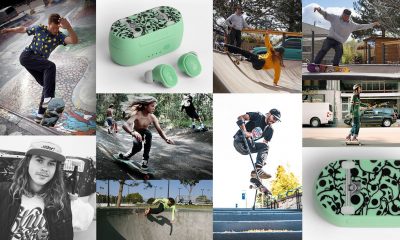
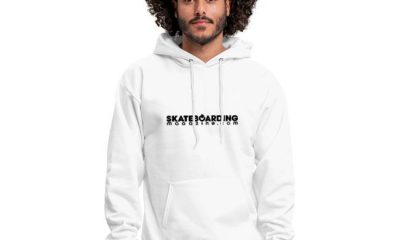
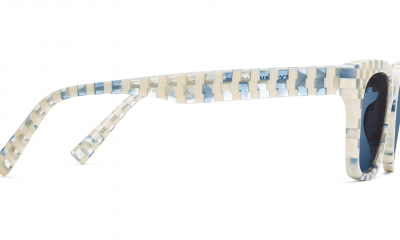
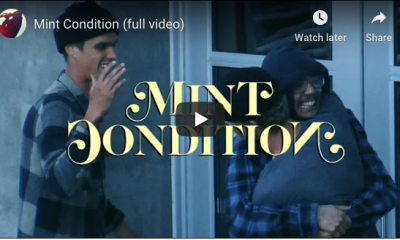
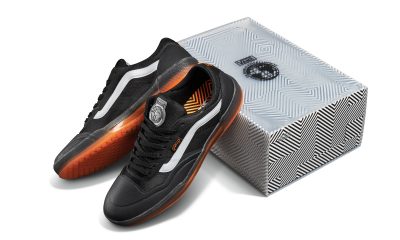

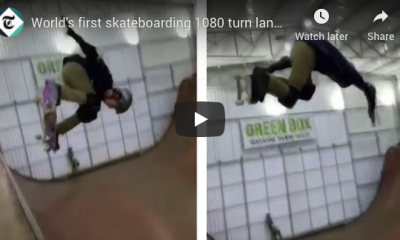
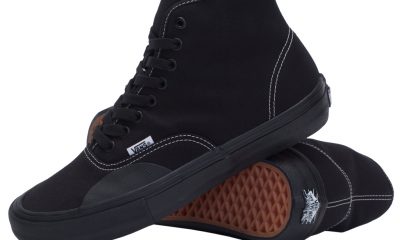
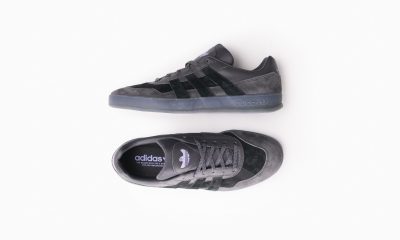
Pingback: Mary Jane
Pingback: Amy Vernon
Pingback: Andrew Burnett
Pingback: Andrew Bell
Pingback: Melissa M Melville
Pingback: Steve
Pingback: Jake
Pingback: Michael King
Pingback: frankforenza
Pingback: Melanie Johnson, LMP
Pingback: The Original | Mike West's | Hypebeast
Pingback: Ozbad Dabzo
Pingback: weeblys